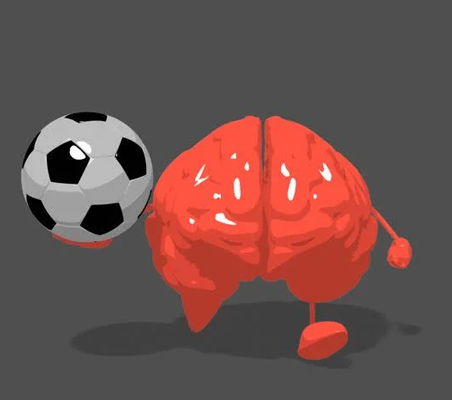
How to Train Your Brain for Soccer: Developing Game Intelligence
Table of Contents
Soccer is more than just physical skills. The best players don’t just run fast or kick hard; they think quickly and make smart decisions. Renato Chaves, a former professional player and now a coach, believes that training the brain is just as important as training the body. In his book Beyond Skill: The Role of Intelligence in Football, he explains how players can develop their game intelligence to perform better on the field.
Soccer requires both physical and mental sharpness. A player who can think fast, understand the game flow, and make the right decisions will always have an advantage. Renato Chaves insights on football intelligence on the field come from practice, experience, and the right mindset. Developing this skill can turn an average player into a great one.
What is Game Intelligence in Soccer?
Game intelligence is reading the game, making fast decisions, and correctly positioning yourself. It makes some players seem to be in the right place at the right time. According to Renato Chaves, this skill is not just about talent. It can be improved and trained.
How to Improve Soccer IQ
Renato Chaves shares practical ways to improve game intelligence through training and real-game situations. Here are some important methods:
- Watch and Analyze Games: Watching professional matches is one of the simplest ways to improve your soccer IQ. But instead of just enjoying the game, analyze what is happening. Notice how top players move, pass, and make decisions. Renato Chaves suggests focusing on a single player and studying their movements during a game.
- Train Decision-Making in Practice: During training, coaches should create drills that force players to make quick decisions. For example:
- Small-sided games: Playing in small spaces forces players to think and react faster.
- One-touch drills: Passing and receiving with only one touch helps develop quick decision-making.
- Pressure situations: Practicing under pressure, like limited time or defenders closing in, makes players more comfortable in real-game scenarios.
- Improve Awareness: Great players always know what is happening around them. Renato Chaves recommends players practice scanning the field before receiving the ball. It helps them make faster decisions and avoid unnecessary mistakes.
- Understand Space and Positioning: Players must learn how to create space and find the best positions. In training, players should:
- Learn when to move forward and when to stay back.
- Practice positioning drills to find gaps in the opponent’s defense.
- Work on movement off the ball to always be an option for teammates.
- Play in Different Positions: A player who understands different roles on the field will have better game intelligence. Renato Chaves recommends young players try other positions in training. A defender who has played as a striker will better understand how to stop forwards, and a midfielder who has played as a defender will learn how to support the backline.
- Think Two Steps Ahead: Soccer is a game of anticipation. Renato Chaves explains that top players always think about their next move before the ball even reaches them. To develop this skill, players should practice predicting plays and reacting before they happen.
- Applying Game Intelligence in Matches: Training the brain is only useful if it is applied in real games. Renato Chaves gives the following advice for using soccer IQ during matches:
- Stay calm under pressure: A smart player does not panic. Take a deep breath and stay composed.
- Communicate with teammates: Good communication improves teamwork and helps avoid mistakes.
- Adjust to the opponent’s tactics: If the other team changes its strategy, adapt your game accordingly.
- Learn from every game: After each match, reflect on what went well and what can be improved.
- Additional Techniques for Game Intelligence To further enhance soccer IQ, players can use these techniques:
- Play Under Different Conditions: Practicing in different weather, field types, and team formations helps players become more adaptable. Understanding how to adjust tactics based on conditions will improve decision-making during games.
- Use Video Analysis: Watching recordings of past games helps players see their mistakes and recognize patterns. Reviewing plays and analyzing positioning allows players to improve their Awareness and tactical skills.
- Simulate Game Scenarios: Training should include real-game scenarios, such as handling a counterattack, playing under defensive pressure, or managing different scorelines. Practicing these moments will make players more comfortable during matches.
Conclusion
Game intelligence is not just for naturally gifted players. It is a skill that can be trained. Renato Chaves believes players can develop their soccer IQ by practicing decision-making, improving Awareness, understanding space, and learning from every match. The best players are not just fast or strong; they are smart and always one step ahead of the game. By applying these methods consistently, players can train their brains and improve their field performance.
